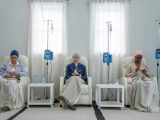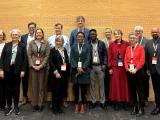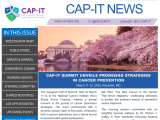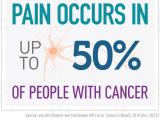
The NCI Community Oncology Research Program (NCORP) selected Judith Hopkins, M.D., and Kristina Gardner, M.H.A. as recipients of this year’s outstanding principal investigator (PI) and administrator, respectively, at the… Learn more
POSTED: 9/26/2024
SOURCE: DCP News

Lynch syndrome, also known as hereditary non-polyposis colorectal cancer (HNPCC), is the most common inherited genetic change that increases the risk of several kinds of cancer including colorectal cancer. About 3% of all… Learn more
POSTED: 9/10/2024
SOURCE: Cancer Prevention Science Blog
Latest News, Upcoming Events
POSTED: 9/10/2024
SOURCE: DCP Updates
Notice of Funding Opportunities (NOFOs): Cancer Prevention Clinical Trials and More; Latest News; Upcoming Events
POSTED: 8/15/2024
SOURCE: DCP Updates

Dr. Lacreuse will discuss pharmacological interventions for cognitive decline induced by aromatase-inhibitor therapy in a marmoset model. Dr. Von Ah will discuss cognitive training interventions for cancer-related cognitive… Learn more
POSTED: 8/14/2024
SOURCE: DCP Symptom Science Updates

In this issue we present: Living with HIV and Preventing Cervical Cancer, AQuIP Analysis, Screening for and Prevention of Anal Cancer as Standard of Care for People with HIV, and Auditing The ULACNet Program.
POSTED: 8/12/2024
SOURCE: DCP News

On May 14, the Food and Drug Administration (FDA) expanded the approvals of two tests that detect cancer-causing types of human papillomavirus (HPV) in the cervix. Both tests are used as part of screening for cervical cancer… Learn more
POSTED: 7/24/2024
SOURCE: NCI Cancer Currents Blog
Latest News, Notice of Funding Opportunities (NOFOs): Cancer Research, Upcoming Events, Grant Submission News
POSTED: 7/16/2024
SOURCE: DCP Updates
Latest News, Upcoming Event, Notice of Funding Opportunities (NOFOs): Lung Nodule Research and Scholars Program, Reminder
POSTED: 6/25/2024
SOURCE: DCP Updates

I-SCORE 2024, Partner Highlight, Staff Highlight, DMACC Updates, Research Funding Opportunities, Active and DCP-Approved Studies, Upcoming Events
POSTED: 6/18/2024
SOURCE: DCP News
Upcoming Events, Latest News, Notice of Funding Opportunity (NOFO): Lasker Clinical Research Program Scholars, Reminders
POSTED: 6/11/2024
SOURCE: DCP Updates

Consider attending these ASCO sessions to learn about the latest from the DCP symptom science and screening research programs, DCP-funded research from NCORP, and to hear from NCI Director W. Kimryn Rathmell, M.D., Ph.D.
POSTED: 5/30/2024
SOURCE: DCP News

For decades, cancer patients have participated in clinical trials of new therapies, and clinicians have assessed and recorded any adverse or toxic reactions to the treatments. Over the years, researchers have standardized… Learn more
POSTED: 5/23/2024
SOURCE: Cancer Prevention Science Blog
Latest News, Upcoming Events, Reminders
POSTED: 5/21/2024
SOURCE: DCP Updates
Latest News, Upcoming Events, Notice of Funding Opportunities (NOFOs): Cancer Prevention Career Development, Reminder
POSTED: 5/7/2024
SOURCE: DCP Updates
Upcoming Event
POSTED: 4/30/2024
SOURCE: DCP Updates
This NCI-authored article examines the benefits and harms of multicancer detection tests. This new generation of cancer screening tests offer the potential for using a noninvasive blood test to reduce cancer-related… Learn more
POSTED: 4/26/2024
SOURCE: American Cancer Society Journals

In this issue we present: Connecting and Presenting at EUROGIN 2024, Challenges and Solutions for Carrying out Multicenter Clinical Trials, and OPTIMO Study has Completed Enrollment in Peru, Brazil and Haiti.
POSTED: 4/25/2024
SOURCE: DCP News

In this issue: investigator news, publicatoins, grants & awards, working groups, steering committe, shared resources, job opportunities, upcoming event.
POSTED: 4/22/2024
SOURCE: CAP-IT News
Latest News, Upcoming Events, Past Event, Grant Submission News, Reminders
POSTED: 4/16/2024
SOURCE: DCP Updates
Latest News, Upcoming Events, In Case you Missed It, Reminders
POSTED: 4/2/2024
SOURCE: DCP Updates
NCI researchers have published a review in CA: A Cancer Journal for Clinicans that outlines what is known and unknown about multi-cancer detection assay technologies. “MCD tests can potentially be used to improve early… Learn more
POSTED: 3/25/2024
SOURCE: DCP News

As improved cancer treatments have led to increased cancer survivorship, cancer survivors are now living longer with chronic pain. NCI is supporting research to address this issue.
POSTED: 3/19/2024
SOURCE: Cancer Prevention Science Blog
Consider attending these DCP PREVENT-funded project presentations at AACR to learn about preclinical development of innovative interventions and biomarkers for cancer prevention and interception.
POSTED: 3/12/2024
SOURCE: DCP News
Latest News, Upcoming Events, In Case you Missed It, Reminders
POSTED: 3/12/2024
SOURCE: DCP Updates
Pagination
- First page
- Previous page
- …
- 2
- 3
- 4
- 5
- …
- Next page
- Last page

